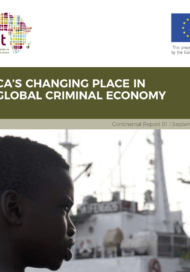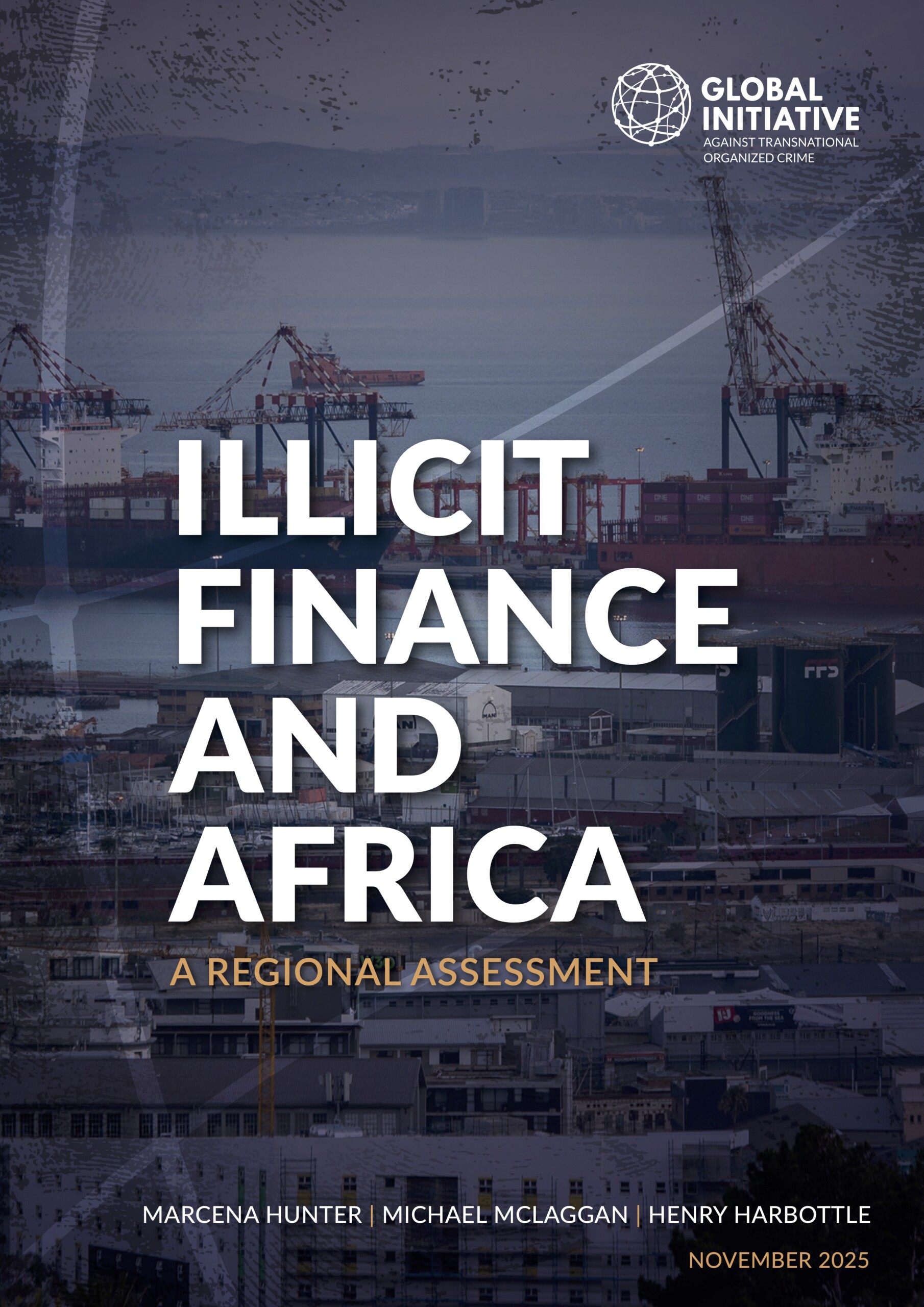Posted on 20 Nov 2017
With the release of the Paradise Papers, the world’s attention has been turned to the role of tax havens in facilitating tax avoidance, tax evasion, and illicit financial flows (IFFs) more broadly. This may feel like déjà vu, with the release of the Panama Papers exposing the offshore dealings of some of the world’s wealthiest elite just last year. However, there does seem to be a distinction between the two leaks. Dealings brought to light by the Panama Papers tended to be associated more closely with tax evasion and illicit dealings, while dealings uncovered by the Paradise Papers seem to consist largely of tax avoidance (although this may change after further investigation).
The difference between the types of flows the leaks uncover may seem like merely a difference in technical terms, but it actually has important ramifications for responses. While both have negative impacts on furthering sustainable development in Africa, leaks which mainly reveal cases of tax avoidance and not tax evasion and other types of IFF generate a much greater response and result in stronger political will to crack down on tax havens.
To better understand these nuances and how they influence Africa, it is necessary to answer the questions: i) what is the differences between tax avoidance and tax evasion?; ii) which, if either, qualify as illicit financial flows (IFFs)?; and iii) what does this mean for responses?
Both tax evasion and tax avoidance are attempts to minimize the taxes and individual or corporation pay. However, in short, tax evasion is illegal while tax avoidance is legal. In practice, the distinction between the terms is not always clear. As summarized by the Inter-Agency Task Force on Financing for Development (IATF), tax avoidance practices often existing in a grey area because of differences in legal standards across countries, weak legal systems in some countries, and different interpretations and acceptance of norms on international taxation.
Turning to the question of whether these flows qualify as IFFs, again this is not a straightforward analysis. While there is general agreement IFFs are the financial side of criminal activity and efforts to define IFFs contain common elements, no general consensus on how to define the term has emerged. It is difficult to develop a definition of IFFs which is narrow enough to be instructive while at the same time broad enough to enable a holistic understanding of what is a complex and multi-faceted phenomenon. The challenge is compounded by the multiplicity of sources generating illicit funds, the variety of ways to shift funds to hide their origin, and the range of actors involved. One definition which has increasingly gained traction is money “illegally earned, transferred or used”. However, there is far from universal adoption of the definition.
Of particular relevance to the Paradise Papers and Panama Papers leaks is the determination of whether the flows are ‘illicit’.
Many definitions of IFFs are limited to flows which are illegal. As discussed above, tax evasion is illegal while tax avoidance is legal, although differentiating between the two may be difficult in practice. A sole focus on legality may undermine the application and effectiveness of international efforts to combat IFFs. Due to the differences in national legal frameworks, the determination of what constitutes IFFs will depend on the legislation of the particular state. Consequently, international mechanisms designed to tackle IFFs can be impaired by differences in national legislation as well as a lack of capacity or willingness to enforce the laws.
However, determining whether a flow is illicit goes beyond legality and assessments must also take into account factors such as rules, customs, fairness to judge the legitimacy of the flow. This is important for determining whether an action is better classed as tax avoidance or tax evasion. In terms of legitimacy, it is widely considered legitimate for an individual to avoid paying taxes, but illegitimate for an individual to evade paying taxes. As such, as illustrated by the World Bank, tax avoidance does not qualify as an IFF, while tax evasion does.
Both tax avoidance and tax evasion have negative implications for African development, reducing the amount of funds available for investment in sustainable development interventions. In addition, in arguing for the disaggregation of analysis and representations of IFFs, Peter Reuter also notes that the impact on governance is especially worrying as public trust can also be eroded by the revelation of elites moving money out of the country. If economic and political elites are able to shelter much of their wealth outside the country, they are not only draining the country of funds which could be applied to development, but also have a lesser stake in the development of property rights, itself a central element of the rule of law. However, IFFs (including tax evasion) can have especially detrimental consequences when impacts beyond monetary loses are taken into account. IFFs fuel criminal economies, can contribute to violence, distort economic and political competition, perpetuate existing inequalities, subvert government institutions, and undermine the integrity of legal and financial systems. For example, IFFs inhibited the achievement of Millennium Development Goals (MDGs) in sub Sharan Africa.
So what does this mean for responses? One challenge to developing cohesive international frameworks which crack down on the use of tax havens is contrasting views about the value and threat of tax havens, notably tensions between stakeholders from developed, northern nations and those from developing. Tax havens are viewed by some as having a positive effect on the global economy, facilitating greater global investment and allowing firms and individuals opportunities for tax avoidance that allows them to sidestep poorly designed tax systems. However, there is a quickly growing body of evidence these “Treasure Islands” facilitate criminality and drain African resources. For example, African actors and IFFs figured prominently in the Panama Papers leak, as documented by the African Network of Centers for Investigative Reporting (ANCIR).
This is problematic for Africa as these northern counterparts tend to have a stronger voice and greater leverage in the creation and enforcement of laws and regulations governing the financial sector. As an illustration, not a single African nation is a member of the Organisation for Economic Co-Operation and Development (OECD) and only South Africa belongs to more than one of six influential international financial institutions, including the Financial Action Task Force (FATF).
In turn, responses to IFFs (and tax evasion more specifically) tend to be driven by wealthy, northern countries). For example, when the OECD and G20 designed the Common Reporting Standard (CRS), a standard for information exchange designed by the OECD and the basis for bilateral agreements between a range of different countries to exchange information, they did so without meaningful consultation of low-income countries. The result, as explained by the Financial Transparency Coalition, is “a system designed by wealthy nations, with wealthy nations in mind, making many of the prerequisites impossible for countries that don’t have sizable tax administration budgets or advanced technical capacity. To make matters worse, some wealthy countries are choosing to share information predominantly or exclusively with other wealthy countries.”
While a wide-ranging and varied set of responses will be necessary to combat tax avoidance, tax evasion and other IFFs, increasing the involvement and strengthening the voice of African actors in international financial institutions is an essential first step. While there is a fine, grey line between transactions which are considered avoidance versus those which are deemed evasion, there are weighty ramifications for responses. Significantly greater resources are aimed at preventing, identifying and combating IFFs (including tax evasion), than tax avoidance. As such, if Africa is to ensure priority is given to the flows that have the most adverse impact on sustainable development on the continent, African actors must have a voice within international financial institutions to ensure regulations, policies and responses reflect African priorities.
Without this shift in participation, Africa’s relationship with tax havens will continue to be one of pain and no gain.



